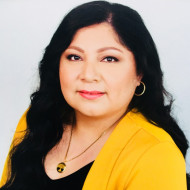Diversional and Recreational Therapist
Kaihaumanu Rēhia
Alternative titles for this job
Diversional and recreational therapists design and run recreation and leisure programmes to support and enhance people's total wellbeing.
Pay
Diversional and recreational therapists usually earn
$28-$35 per hour
Diversional and recreational therapists in managerial or leadership roles usually earn
$36-$50 per hour
Source: NZSDRT, 2023.
Job opportunities
Pay
Pay for diversional and recreational therapists varies depending on experience, qualifications, registration and responsibilities.
- Newly qualified diversional and recreational therapists usually earn $28 an hour.
- Qualified, experienced and registered diversional and recreational therapists usually earn $28 to $35 an hour.
- Diversional and recreational therapists in managerial or leadership roles can earn $36 to $50 an hour, or more.
Source: New Zealand Society of Diversional and Recreational Therapy (NZSDRT), 2023.
- PAYE.net.nz website - use this calculator to convert pay and salary information
- Employment New Zealand website - information about minimum wage rates
(This information is a guide only. Find out more about the sources of our pay information)
What you will do
Diversional and recreational therapists may do some or all of the following:
- help people develop physicial and social skills and improve their total quality of life, confidence and independence
- plan exercise, mental stimulation, creative and fun programmes and events
- encourage people to participate and enjoy activities and events
- assess and document people's progress
- discuss participants' progress with medical and other professionals, and families.
Skills and knowledge
Diversional and recreational therapists need to have knowledge of:
- how to plan and run recreational therapy activities for groups and individuals
- how to motivate people to participate in activities
- art and craft techniques
- sporting and cultural activities
- first aid.
Working conditions
Diversional and recreational therapists:
- may do shift work, which can include evenings, weekends and public holidays
- may work in a wide variety of organisations including aged care, dementia care, community centres, the corrections system, schools, youth centres and early childhood centres.
What's the job really like?

Orquidea Tamayo Mortera
Registered Diversional Therapist
Why did you become a diversional therapist?
"I started as a diversional therapist working with people who had mental health illnesses and intellectual disabilities. I realised that when people behaved in a challenging way, it was usually because they weren't being provided with the right support to engage them.
"Now I mainly work in aged care, but I still do recreational therapy with other vulnerable groups.
"When you get to know the person you're supporting, and their life story, you can develop a unique programme to meet their needs."
What’s a typical day like for you?
"We usually have a group programme planned for the morning. For example, we might do body percussion, which enhances people’s brains with movement and music.
"In the afternoon, we usually meet with clients one on one. We spend 10 to 15 minutes with each of them.
"Depending on what sector you’re in, some of the people you’re working with may have died the night before. So you have to get over the grief and keep smiling to support others who need it."
What’s the most enjoyable part of being a diversional therapist?
"The best part of the role is seeing the effects on clients’ wellbeing when people assume that nothing can be done, except medical intervention.
"For example, when people know that someone has dementia, they think that person won't be able to enjoy anything. But when you offer them a therapeutic intervention that meets their needs, you can see them laughing – it’s kind of like waking up their abilities, and proving people wrong."
Pauline Plewinski talks about her job as a diversional therapist – 2.32 mins. Video c/o Careerforce
0:09
Northland, here in Whangārei.
0:12
I am the floor leader so I work in
0:14
conjunction with our registered
0:17
diversional therapist who structures a
0:20
programme each day for the clients, so that
0:23
it's varied and it gives them all the
0:25
opportunity to do things that may interest them.
0:27
We run a programme that looks at
0:31
cognitive and physical activities for
0:35
them. I have a passion towards older
0:37
people. I enjoy meeting older people.
0:39
I enjoy talking to them. Dementia changes
0:42
a person as the disease progresses.
If we
0:46
take the time to sit and talk to them
0:48
and [offer] individual programmes and activities
0:52
that we run - you see the real - like the
0:56
person they used to be come out. They still
0:58
enjoy the social side of it. They love,
1:03
love to laugh. They joke and it's really
1:07
good that they have somewhere where they
1:09
can come and they're all in the same boat.
1:12
That no one looks at them differently as it
1:15
is if they're out in the community at times.
I'm
1:17
studying the Careerforce
1:18
apprenticeship in diversional therapy.
1:20
What I have already learned has been
1:22
amazing - I've learned a lot more about
1:25
cultures of people that attend here,
1:28
of who we have, and what's important to them
and how we
1:31
can incorporate that into their programmes
1:34
as well. It's good to know that there's still
1:36
ability to learn things - I mean I think
1:38
good carers of everybody involved in this,
1:40
they need to be able to learn every day and I feel
1:44
that aged people like elderly people
1:46
have a lot to offer still
1:49
if you have the time talk to them and
1:51
listen to them. They're no different to
1:54
everybody else. They still love the social
1:57
side; they still like to have friends;
1:59
they still like to do things that are
2:02
important to them. And to be in a place
2:05
where they don't feel that other people
2:08
are looking at them differently,
2:10
it's just like amazing for them.
If you have a
2:14
passion for something, make it your
2:15
career because how can you ever hate a
2:19
job that you are passionate [about] and you love? Thanks!
Entry requirements
There are no specific entry requirements to become a diversional and recreational therapist.
However, employers may prefer you to have a New Zealand Certificate in Health and Wellbeing – Social and Community Services (Level 4), specialising in Diversional Therapy.
You can complete an apprenticeship to gain this qualification.
Careerforce oversees apprenticeships in diversional and recreational therapy.
- Careeerforce website - Apprenticeship in Health and Wellbeing (Social and Community Services) specialising in Diversional Therapy
- More information about apprenticeships
Qualified and experienced diversional and recreational therapists can apply to be registered with the New Zealand Society of Diversional and Recreational Therapy.
- The Vulnerable Children Act 2014 means that if you have certain serious convictions, you can’t be employed in a role where you are responsible for, or work alone with, children.
Secondary education
No specific secondary education is required for this job, but English, health education, music, dance and drama, physical education, and painting, sculpture, photography and printmaking are useful.
Personal requirements
Diversional and recreational therapists need to be:
- patient and resourceful
- enthusiastic and able to motivate others
- caring, respectful and empathetic
- good communicators with emotional and cultural intelligence, able to communicate non-verbally
- practical, flexible and innovative
- able to work well in a team.
Useful experience
Useful experience for diversional and recreational therapists includes work with the elderly, people with disabilities and children.
Physical requirements
Diversional and recreational therapists need to have a good level of fitness and must be reasonably strong, as they may need to help carry or move people.
Registration
Qualified and experienced diversional and recreational therapists can apply to be registered with the New Zealand Society of Diversional and Recreational Therapy.
Find out more about training
- Careerforce
- 0800 277 486 - info@careerforce.org.nz - www.careerforce.org.nz
- New Zealand Society of Diversional and Recreational Therapy
- 027 475 5950 - secretary@diversionaltherapy.net.nz - www.diversionaltherapy.net.nz
What are the chances of getting a job?
Demand for diversional and recreational therapists growing
Demand for diversional and recreational therapists' services is growing due to the:
- ageing population, which means more people in rest homes and hospitals
- a shortage of diversional and recreational therapists
- increasing number of people with disabilities in supported living.
According to the Census, the number of diversional and recreational therapists in New Zealand rose from 1,008 in 2013 to 1,608 in 2018.
Registration boosts chances of getting diversional and recreational therapy work
Becoming a registered diversional and recreational therapist can increase your chances of finding work as it means you can prove you have at least 3,000 hours of experience, and that you follow a code of ethics.
Types of employers varied
Most diversional and recreational therapists work in aged care and dementia care. Others work for:
- youth and community centres
- agencies that support people with disabilities
- schools and early childcare centres.
Sources
- New Zealand Aged Care Association website, accessed September 2020, (www.nzaca.org.nz).
- Stats NZ, '2018 Census Data', 2019.
- Tamayo Mortera, O, registered diversional therapist and president, New Zealand Society of Diversional and Recreational Therapy, careers.govt.nz interview, February 2023.
(This information is a guide only. Find out more about the sources of our job opportunities information)
Progression and specialisations
Diversional and recreational therapists may progress to managerial roles, including leading recreation teams at rest homes and hospitals.
With further training, they may become occupational therapists.
Diversional and recreational therapists may specialise in:
- art therapy
- play.
Last updated 9 December 2024

